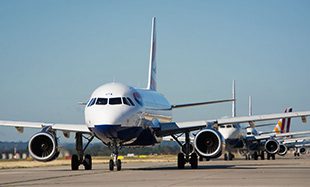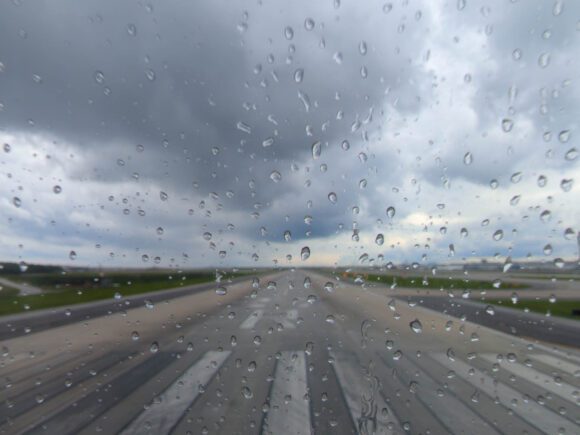
heathrow 175812034119410
The debate about commercial airlines currently is dominated by bailouts, loans, job reductions, and a weak demand expected to last for at least four years. But until the impact of Covid-19 on the sector became apparent, a very different and very sharp public debate was on the table. That of flightshaming, flying less or responsibly, and the need to meet environmental targets for 2050. These two have now got entangled after the International Civil Aviation Organization (ICAO) during the game has changed the rules for its carbon offset program.
The ICAO Council decided on June 30 to adjust the guidelines for the Carbon Offsetting and Reduction Scheme (Corsia), originally adopted in 2016. In the original scheme, the average levels of carbon dioxide emissions of 2019 and 2020 combined would form the baseline of the voluntary pilot phase between 2021-2023. The sector would need to reduce its emissions based on these levels. Corsia targets carbon-neutral growth from 2021 and a 50 percent reduction of carbon dioxide and other greenhouse emissions in 2050 compared to 2005 levels.
Inappropriate economic burden on airlines
With the sharp reduction in flying seen during the Covid-crisis, ICAO and its member states concluded 2020-levels would incorrectly reflect the situation. “The impact of the Covid-19, significantly lowering international aviation operations, traffic, and emissions in 2020, would lead to a consequential reduction in the Corsia baseline, calculated as the average of 2019 and 2020 emissions from the sector. This, in turn, would create an inappropriate economic burden to aeroplane operators, due to the need to offset more emissions although they are flying less and generating fewer emissions”, ICAO said.
The Council determined that “the value of 2019 emissions shall be used for 2020 emissions to avoid inappropriate economic burden on the aviation industry, for the Corsia implementation during the pilot phase from 2021 to 2023.” The council acknowledged that by doing so Corsia will disrespect the originally-agreed intention of the scheme, but council President Salvatore Sciacchitano said the adaption is a “the most reasonable solution available given our current and very extraordinary circumstances.”
Some participating countries suggested deferring a decision until there is a better understanding of the extent of the Covid-crisis, but a majority decided they wished to have clarity on the baseline rules now for both themselves and their airlines. Without a decision, the future of Corsia would have been at stake, the Dutch government writes in a letter to parliament. That’s why it supported a compromise to include only the pilot phase until 2023.
ICAO acknowledges that more adaptations to subsequent phases of Corsia are possible, “in light of how the sector’s recovery would take place, and more data and analysis of the situation and impacts on Corsia will be needed.” This will result in a review of the pilot phase in 2022 and which could result in additional adjustments of Corsia until 2035.
“ICAO deflates original ambitions”
This caused suspicious reactions from critical lobby groups, like the International Coalition for Sustainable Aviation (ICSA). They criticize ICAO for “deflating” Corsia’s original ambitions, which according to opponents are already weak. The decision “is a betrayal to future generations, and a slap in the face to the multilateral work to build the program. (…) Airlines, in pushing for this change, have undermined their own case for international action. Given ICAO’s unwillingness to lead, ICSA urges governments to adopt national measures to support the climate ambition that is needed.”
Unsurprisingly, airline lobby groups have welcomed ICAO’s decision. In a statement, IATA Director General Alexandre de Juniac said: “This decision to remove 2020 from the baseline calculation marks a pragmatic way forward that maintains the intent, spirit, and impact of the Corsia agreement. And it gives all stakeholders the confidence to focus on successfully delivering Corsia and achieving our long-term emissions reduction goals, even in this time of crisis.”
Airlines 4 Europe (A4E) and Airlines 4 America (A4A) both applauded ICAO’s decision.
Views: 0



